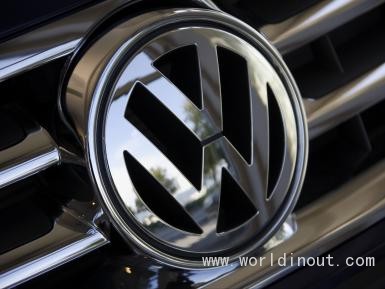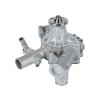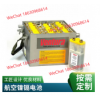
EPA tests under laboratory conditions, which involve putting cars on a stationary rig, yielded different results than under normal operating conditions. Under normal driving conditions, the engines emitted nitrogen oxide pollutants up to forty times above the level allowed in the United States. At first, the issue only affected diesel autos produced by VW. In diesel engines, the catalytic convertors use primarily platinum. In gasoline-powered engines, palladium is the primary metal used in the catalytic convertor. Therefore, the EPA findings and scandals meant a real problem for diesel cars thus decreasing expectations for the future demand of platinum. When the news about VW broke in the middle of September 2015 the price of platinum was already weak due to the lethargic global economy and economic weakness in China.
EPA tests under laboratory conditions, which involve putting cars on a stationary rig, yielded different results than under normal operating conditions. Under normal driving conditions, the engines emitted nitrogen oxide pollutants up to forty times above the level allowed in the United States. At first, the issue only affected diesel autos produced by VW. In diesel engines, the catalytic convertors use primarily platinum. In gasoline-powered engines, palladium is the primary metal used in the catalytic convertor. Therefore, the EPA findings and scandals meant a real problem for diesel cars thus decreasing expectations for the future demand of platinum. When the news about VW broke in the middle of September 2015 the price of platinum was already weak due to the lethargic global economy and economic weakness in China.modity prices have been in a brutal bear market since 2011. For the most part, prices have made lower highs and lower lows. Platinum and palladium have been no exception. A strong dollar and weak global economic conditions has added to weakness in these metals in 2015. Recently, these metals have seen a divergence in price. Palladium had outperformed platinum over recent months and the reason could be the unfolding of a scandal at one of the world's largest automobile manufacturers.
Platinum had already moved below the key psychological level of $1,000 per ounce -- the lowest price since 2009. However, when the EPA issued a notice of violation of the Clean Air Act to Volkswagen Group on September 18, 2015 the price of platinum moved lower. It reached lows of $846.10 per ounce on November 18, 2015.
Meanwhile, palladium, which was under pressure and reached lows of $519.20 per ounce on August 26 initially moved higher after the EPA action against VW. The price rallied to highs of $724.95 per ounce by October 9. The divergence between the two platinum group metals was due, in large part, to the problem with and charges against the VW diesel engines that require more platinum. The recall of automobiles crushed the price of the platinum while palladium rallied as gasoline powered engines appeared to be unaffected by the scandal.
After the scandal was first announced, an overall commodity rally that commenced at the beginning of the fourth quarter of 2015 caused the price of the metal to rally to highs of $1,026.80 on October 16 -- the timing of the highs corresponded to highs in other precious metal markets including gold and silver. Meanwhile, palladium prices moved slightly lower as platinum recovered. By early November, the market capitalization of Volkswagen dropped by 40%. When VW announced earnings in late October of 2015, the company reported its first loss in 15 years as they set aside 6.7 billion euros to cover the initial costs of the scandal.
In early November, the scandal appeared to be spreading. The EPA charged that VW used "defeat devices" to provide lower emissions readings in testing than in actual use. The U.S. agency accused the carmaker of fitting the devices on its larger 3.0-liter diesel vehicles. The EPA also implicated high-end VW brands, Audi and Porsche. Moreover, it is possible that some gasoline engines produced by the company are also emitting more greenhouse gases than laboratory tests have shown in the past. This raises the potential for massive recalls around the world for vehicles produced by the company. It also means that car sales will fall, which added pressure to the already besieged platinum group metals. As of November 20, the price of platinum was trading around $854 and palladium was at $560 per ounce.
Aside from reputational risk, the scandal at VW had a profound impact on platinum group metals, platinum and palladium, which are key components in the catalytic converters in their vehicles. The price of rhodium, another less liquid platinum group metal used in catalytic converters, has also moved lower trading down to around $735 per ounce on November 20, after trading at over $900 per ounce in July 2015. Platinum group metals are necessary components of catalytic converters in automobiles. The scandal at VW will likely cause a huge number of recalls of cars around the world; this is likely to affect demand for these and other new cars in the months ahead. With already weak global economic conditions, new car sales could suffer in the face of the scandal. One of the reasons why prices of platinum group metals have been weak is this scandal.






